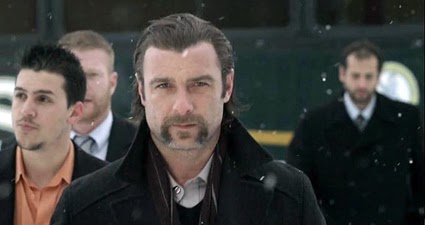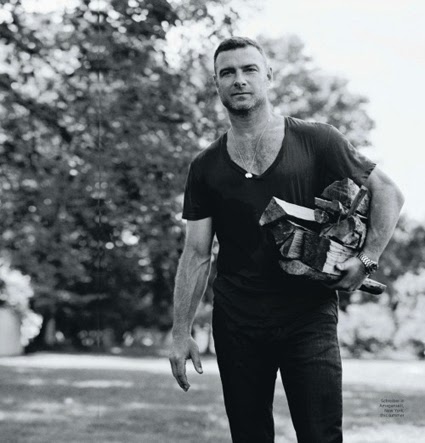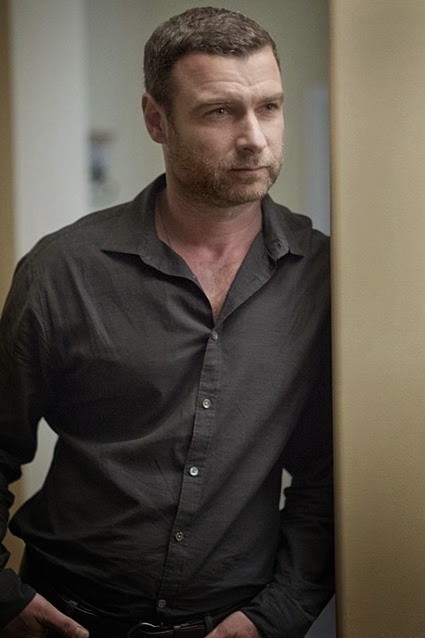Personal Quotes
It's not easy being 6' 3" and being called 'Huggy'. - on the nickname he's had since childhood.
I think a certain amount of Ricky's rage and profanity has been a nice vent from the frustrations of the editing room, so it's great to come out screaming profanities at the audience for an hour and a half after eight hours of trying to be diplomatic in the editing room. on editing 'Everything is Illuminated' at the same time as acting as foul-mouthed Ricky Roma in "Glengarry Glen Ross.
Trying to escape the powder puff and the man blush was the primary motivation for this whole endeavor. It's weird. You think, 'Now I'm going to direct, and they won't give me such a hard time about how I look.' But sure enough, there they are, coming at you with the powder puff and the man blush. [on the make-up required to 'hide' his nose]
That's the hard thing about adapting a book that's so well loved. It's like playing Hamlet. The audience doesn't buy it, because they're Hamlet. How could you possibly be Hamlet when Hamlet is them? It's one of those difficult things where a good writer gives the reader ownership of the material. They develop an intimate relationship with it and become its protectors, and rightly so. Whether they like the movie or not, there is something a bit outrageous about exploiting their private story.
If you are going to remake a film, you may as well remake a classic. I do think great stories have a way of retelling themselves. The medium is so young that so much is not content-driven, it's about stars and the studio. But when we have gotten through that phase of film, which I figure we probably will in about 15 or 20 years, films will be able to stand on the legs of their stories.
Style, no matter how outrageous it is, is still an expression of someone's personality. And my personality is somewhere stuck in the classics.
You can think about your career or you can think about your job. I like to think about my job.
It's good to overexpose yourself with work. But don't expose yourself too much with the press.
I am so used to being able to express myself from being an actor. So when people don't understand me, I'm just completely lost.
Everyone assumes that novelists are smarter and more interesting. They're generally smarter and more interesting, but they're often very short. So it kind of cancels all the smart and interesting stuff out.
"When I'm doing classical theater, I feel engaged and all pistons running and like I'm on new territory, because the size of it is so much bigger and the scope so much broader." - to Variety (05/1999)
People always pronounce it Leave. I walk into a casting person's office and the first thing I usually hear is 'Leave!'
I like to do plays, and I want to do plays, but the problem is, I can't afford to do plays. So I did film jobs to pay for the plays. But I can't help but like doing films as well. It's fun. Acting is like an addiction-once you start, you can't stop. It's not like I do them for money and just pull them out of my ass or anything. It's all acting, but it's just not as fun doing it in front of a camera as it is for 500 or 600 people.
Someone very smart once said to me, 'Steal, don't borrow.' So if there's anything good in anything anyone else does, it's fair game. I think that everything I've ever done at some point is part of someone else's legacy. I just think that it helps to be able to understand the role, and to see it interpreted, and to see the range of interpretations, and let those bounce around inside your head while you're working. You hear different things from different people, and they're all valid, they're all valuable. I think that's what comprises a performance, is all those ideas. It's impossible, I think-I really do think that if you're doing your job right, you're never gonna be what the other guy was, but you can be influenced by his intelligence and his choices. It's insane not to know everything that's out there. I guess some people are affected negatively by seeing someone else do it, but I've always been sort of...Particularly with the plays I choose, they're good parts, and they're parts that have been around long before a bad actor played them, and will be around long after I play them. Part of what I enjoy about the theatre and acting is that sense of history.
[on Todo está iluminado (2005)] I started to read about the Ukraine more-the book came out after my grandfather's death, and I started to really wonder about what that immigrant experience was like, especially since the majority of people in this country come from immigrant backgrounds. It was something I thought was interesting to write about, and something I was curious about personally and also artistically-it seemed like an interesting theme. I think that after Sept. 11, there were all these questions for me about compassion and patriotism. I became really curious about that stuff. Why doesn't that exist in this country any more as it maybe existed after World War II? There was a kind of ideology and morality that was perhaps ignorant and innocent, but certainly inspirational to me, and I wonder what happened to that during the Sept. 11 attacks, when I just felt a lot of confusion and sadness.
And all of that made sense to me, but there was this hit of patriotism and idealism that came out of that. It was so wonderful and it was so brief. It also ended up manifesting in anger and a declaration of war. So I started to become curious about what it meant to be American, because as I had gone over to Europe-I'd acted over in Europe, I did a couple of films in Prague-I started to wonder about people's impressions of Americans, and what that meant, and who we were. There was this real misconception that we were these gun-toting cowboy clichés, when in fact we were much closer to them than they knew. And that was there in Jonathan's book for me. The clash between the American kid and the Ukrainian kid embodied that, that we are not as far away from each other as we think we are. Our pasts are deeply interconnected. And I think there's great compassion and humor in this.
[on his mother] We weren't wealthy, but she was a cultured woman. She's been trying to get me to play classical violin and piano since I was five, she taught me to read long before I was in public school. So I had a range of education and culture that wasn't necessarily in sync with my peers, because it was my mom's education and culture. I knew a little bit about Tolstoy and Bach, and not nearly enough about Motown and the Knicks. So I had a rebellion, I think I gravitated toward hip-hop and the Knicks and street culture because it was further away from what I was experiencing in my house. Then my father came back on the scene and said, 'You should go to private school.' It wasn't as unfamiliar as people imagined it was, because I had that background with my mother.
Art and literature were at the core of who she was as a person. I don't know if I related that much to public-school kids, or kids with a lot of money-I felt uncomfortable in that situation, embarrassed by where we lived, things like that. But art and literature were present there, where it wasn't as present in the public-school programs. I think that's a really big problem. Call me communist, but I think that's something that everyone, regardless of their family's income, has a right to, and I was fortunate enough to have a mother who felt that way as well. So when I finally ended up in private school, I had a background from her that I could connect to the program with, like, 'Hey, I'm familiar with art and literature, let me hang out over here.'
I think education gets a bad rap. I think when you're looking at the educated aspects of Shakespeare, you'd be surprised how much goes into understanding and analyzing those plays. You have to know what you're saying, and to know what you're saying, you have to have a foundation in an arcane language, and that takes reading. And familiarizing yourself with other poetry of that period, and iambic pentameter, and verse structure. It's about music too, someone who studied music has an inlet into those plays. Plus knowing little bits of history.
I mean, even understanding that people were smaller back then, and their lives were shorter, and how that affected the way they behave-their attitudes and emotions were in many ways profoundly affected by the way in which they were forced to live their lives. To understand the range of emotional behavior, you have to understand the society and the culture at least a little bit before you can present it to a contemporary audience in a clear way. Even if you're not doing a period production, you have to understand what was intended when it was written, and you have to find a way to translate that so it's conveyed when it's performed now.
[on playing Raymond Shaw in El mensajero del miedo (2004)] Well, I'm always up for mimicry, I consider myself a thief more than anything else. If somebody somewhere has done something interesting then all bets are off. I'm a huge fan of the original film. I've seen it probably four or five times. But I wasn't worried about duplicating Laurence Harvey's performance, because I don't think it's humanly possible. He was fantastic. Also - and I think this is a great testament to the writing of Richard Condon - it was a very different character because there's a wonderful campness to the original that I don't think you could replicate either. So that made it easier for me.
Theater is consistent. You ride your bike to work. You get most of the day off so you can see your kids. My problem is that after three months I go mad. One of the reasons I never thought I could do a TV show is that I hate doing the same thing over and over again. Part of me always feels like things should be hard.
It has made me a better person in fits and starts. I had been a very selfish person most of my life, and that shifts quickly and dramatically. It's painful and fascinating and ultimately really wonderful, but I am particularly lucky because I have exquisitely beautiful, talented, brilliant children. If I had had ugly, stupid children, it would've been difficult to turn that corner.
I have Slavic fat pads that make me look like a chipmunk and arched predatory eyebrows. With that, you're not going to get funny. That's why I play so many bad guys.
[on character Ray Donovan] She writes about violence, vulnerability, and the facade of machismo in a glossy, sexy way, but with depth, duality, and humanity. He's very lonely and very isolated. The contract of marriage, sexuality, relationships, all of that stuff is outdated. Every other social group has gotten an upgrade except for the average white man, and Ray is working on old software, functioning in a world that no longer appreciates men as breadwinners and warriors, and there is a lot of pain in that.
 |
| return |





























































































.tiff)
.tiff)












































